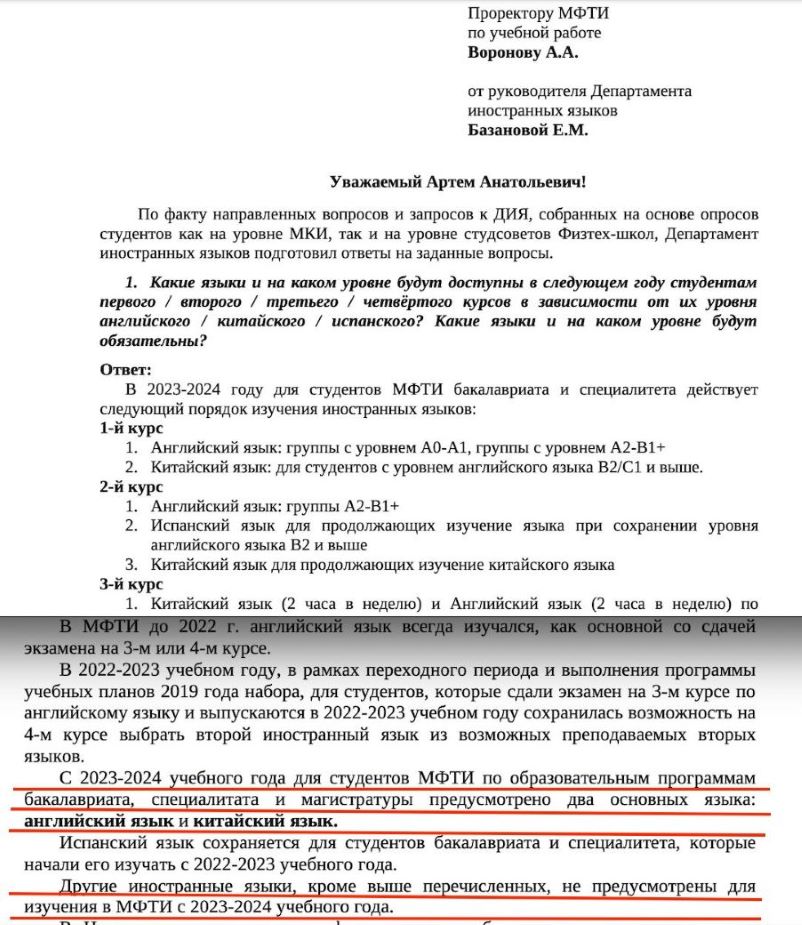A Moscow university introduces Chinese as a mandatory foreign language discipline
The Moscow Institute of Physics and Technology (MFTI) has amended the 2023-24 academic curriculum by introducing the Chinese language as a mandatory discipline along with English study. On the other hand, French, German, and Spanish have been removed from the study program.
Students complain that the institution’s management did not inform them about the changes and literally “forced” them to abandon the study of European languages in favor of Chinese, the Telegram channel Ostorozhno Moskva reports.
The channel published a copy of a briefing letter which the Foreign Languages Department prepared for the MFTI management over its plans for the forthcoming academic year. Its authenticity cannot be confirmed and the university has not edited the information on its website.

Copy of a presumed briefing letter prepared by the Foreign Languages Department for MFTI management, outlining its plan for Chinese.
Students who until now studied other languages than Chinese at MFTI will be able to complete their education in compliance with the old curriculum.
Newcomers will have to choose between Chinese and English, but given that Chinese is difficult and English is more practical, there’s little doubt regarding the choice.
In addition, it is not clear whether Russia will ask China to send books and lecturers of Chinese or will print and, respectively, train its own.
MFTI is a leading Russian university that trains specialists in the field of theoretical, experimental and applied physics, mathematics, computer science, chemistry, biology and related disciplines. The status of English at MFTI remains unchallenged.
The curriculum amendment, which has shocked the student community at MFTI, looks more like a political gesture than an objective need, in spite of the growing trade between the two countries.
Whether this is a singular case or Chinese learning is trending in Russia is not clear.
The unprecedented Western sanctions during the past 15 months forced the country to seek alternatives for its gas and oil exports, and bilateral trade with China exceeded 93 billion US dollars from January to May this year alone – a 40.7% boost compared with the same period of 2022.
The EU and the US have cut trade with Russia down to a freezing point for its invasion of Ukraine in February 2022.







